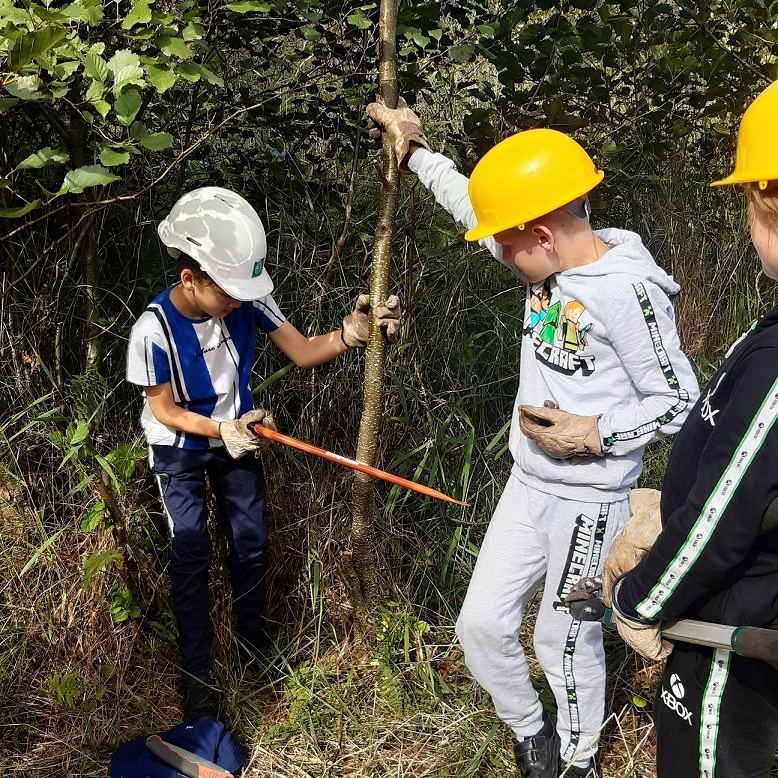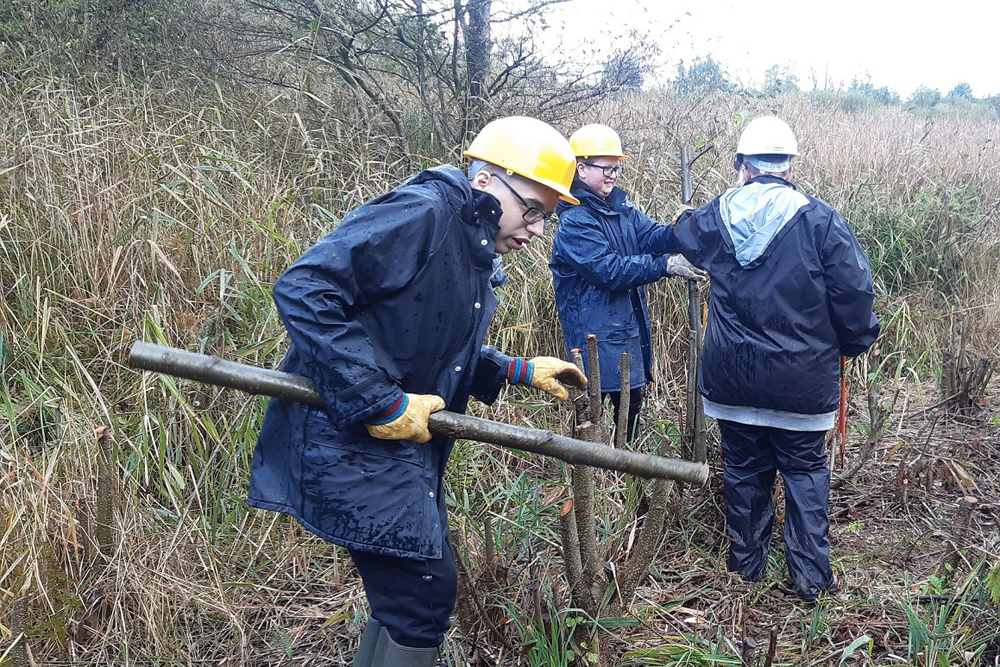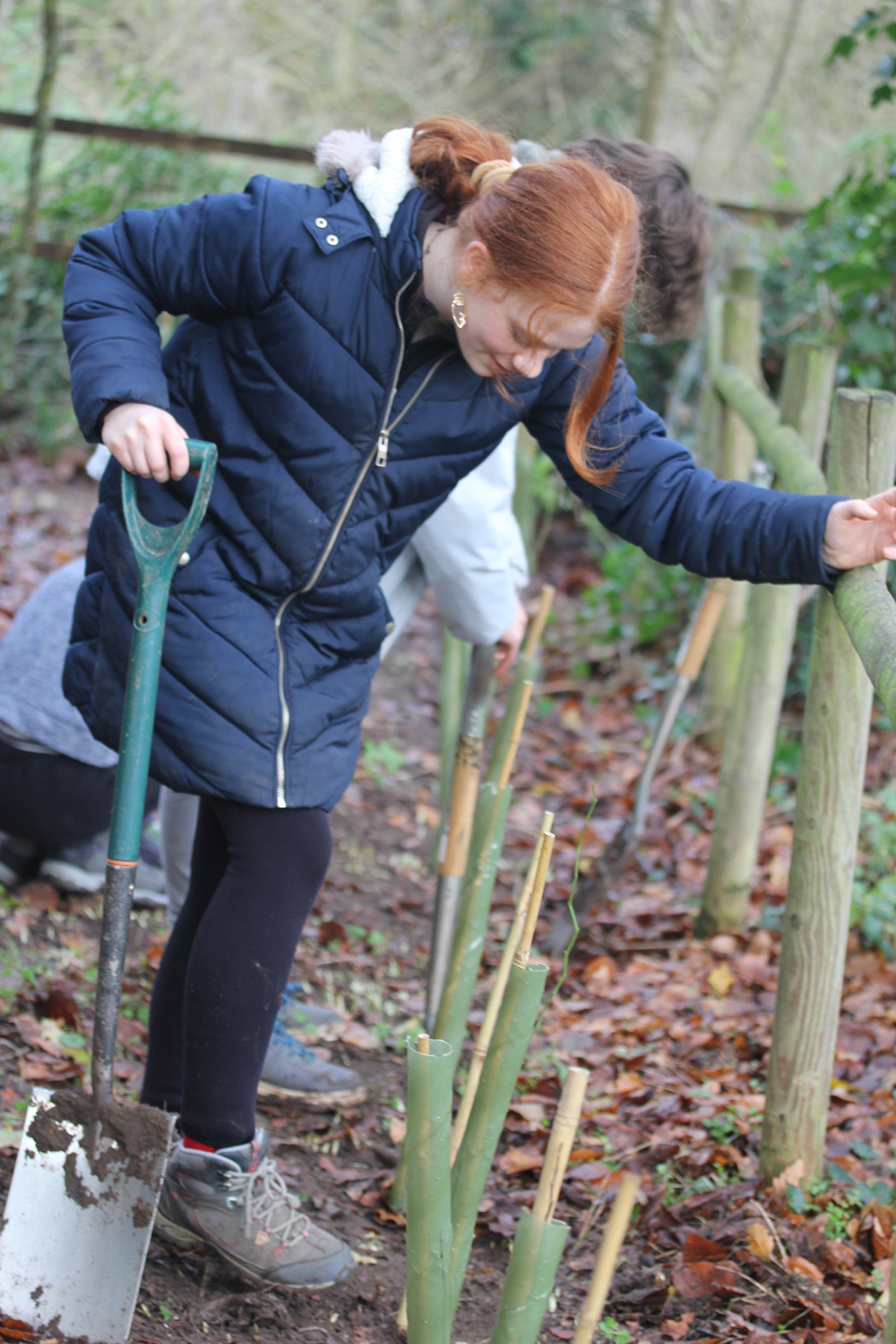New Broads youth project inspires next generation to care for nature
The Generation Green project has been running in the area since May but has already delivered many exciting educational activities for young people, to help them learn about nature and be inspired by the Broads National Park.
Generation Green is a 16-month national project giving 100,000 young people the opportunity to connect with nature in protected areas throughout the UK. The project aims to engage young people who don’t normally get the chance to get out into nature and the local environment.
Here in the National Park, the project aims to introduce young people to the wonders and special qualities of the Broads. It involves learning outdoors, not only about wildlife but also about the Broads’ windmills, grazing marshes and about how the landscapes is shaped by people.
The Broads Authority’s education team, who deliver the project, hope that by creating exciting learning opportunities outdoors, young people will have the chance to cultivate a sense of care for nature and the Broads. Some also spend ‘a night under the stars’, an aspiration for all children, identified in Julian Glover’s Landscape Review.
Two outdoor education specialists, Emily Chittenden and Chris Ford were recruited to help deliver the project. Emily has worked as an environmental and outdoor instructor, including for the National Trust. Chris worked as a tutor for the Field Studies Council and now leads the school visits programme at RSPB Minsmere.
The project has already made a difference to the lives of young people and opened their eyes to nature on their doorstep. The project team have noticed the delight young people experience when they see wildlife up close for the first time. For example, they ran activities for young carers who usually spend their time caring for their families. Being outdoors gave them the freedom to breathe and enjoy childhood again.
Some impressive results from the project so far, include:
Between May and November, 421 young people between the ages of 11 and 26, from urban or coastal communities, who would not usually have access to nature, engaged with the special qualities of the Broads National Park. The project has so far delivered 2032 hours of activities, 270 hours of conservation work and 126 hours of footpath maintenance at Barton Turf.

Primary school children from inner city London schools, Great Yarmouth and Lowestoft have taken part in day or residential visits. Activities include: dyke dipping, scrub clearance, peat core investigation, path laying, a boat trip to Barton Broad, charcoal making, geocaching, a stargazing walk to the top of Beeston Bump, and exploring the coastline. Some have been on a tour of Horsey wind-pump, walked through low-lying grazing marshes, looked at the Countryside Code, and gone seal watching with Friends of Horsey Seals.
Project participants included youth groups, Sprowston Youth Engagement Group, Charter Academy, Parkside School, Pathways College, Notre Dame High School and Trowse Primary School.
To deliver this ambitious programme required the recruitment of five new volunteers to the education team, plus a Kickstarter Apprentice from the Ecology and Design team and a number of the Authority’s Rangers. This gave the young people lots of expert adults to work with and explain their activities.
The project also created new relationships with ethnic-minority youth groups, including young Bangladeshi women via the New Routes outdoor programme, Bridge Plus, refugee and asylum groups in Norwich and Great Yarmouth.
The young people so far, have been most excited about night walks in the dark with torches, using adult tool such as bow saws, loppers and getting into squelchy ‘farty’ mud. Other highlights for young people include staying away from home on a residential trip, whittling wood around a campfire and close encounters with wildlife, usually experienced for the first time. E.g. catching a dragonfly-larvae in a net, seeing kingfishers feeding up close and seeing one land on the front of a canoe.

Broads Authority, Project Officer, Emily Chittenden, said about the project:
“The best thing about working with young people is their energy and enthusiasm, their sense of wonder and their questioning minds. They know that it’s their generation who inherits the future and that we adults need to be inspiring them.
“If you can get just one child hooked onto something they’ve done with the project, it makes you feel hopeful for the future.”
Broads Authority Education Officer, Nick Sanderson said,
“Learning outside of the classroom really demonstrates how a connection with nature is vital for improving mental and physical wellbeing. Particularly after lockdowns, so many children have felt anxious and being outside is therapeutic for them.
“Building this connection to nature is the first step towards caring about it, and caring is the next step towards wanting to protect the environment. They are just learning how special these places are, and, we hope there will be a next phase of the project where we can deepen this connection with the same group of children.”
Generation Green is the first project to be delivered by the Access Unlimited Coalition. The coalition is hosted by (YHA England & Wales) and comprises of the Outward Bound Trust, Scouts, Girl guiding, Field Studies Council and the 10 English National Parks. This project is funded by the government’s Green Recovery Challenge Fund. The fund is being delivered by The National Lottery Heritage Fund in partnership with Natural England and the Environment Agency.
The project runs until the end of March this year, with many more opportunities planned for young people to connect with nature. The team hope to bid for future funds to continue and enhance the learning of current students.
Tuesday 11 January 2022


